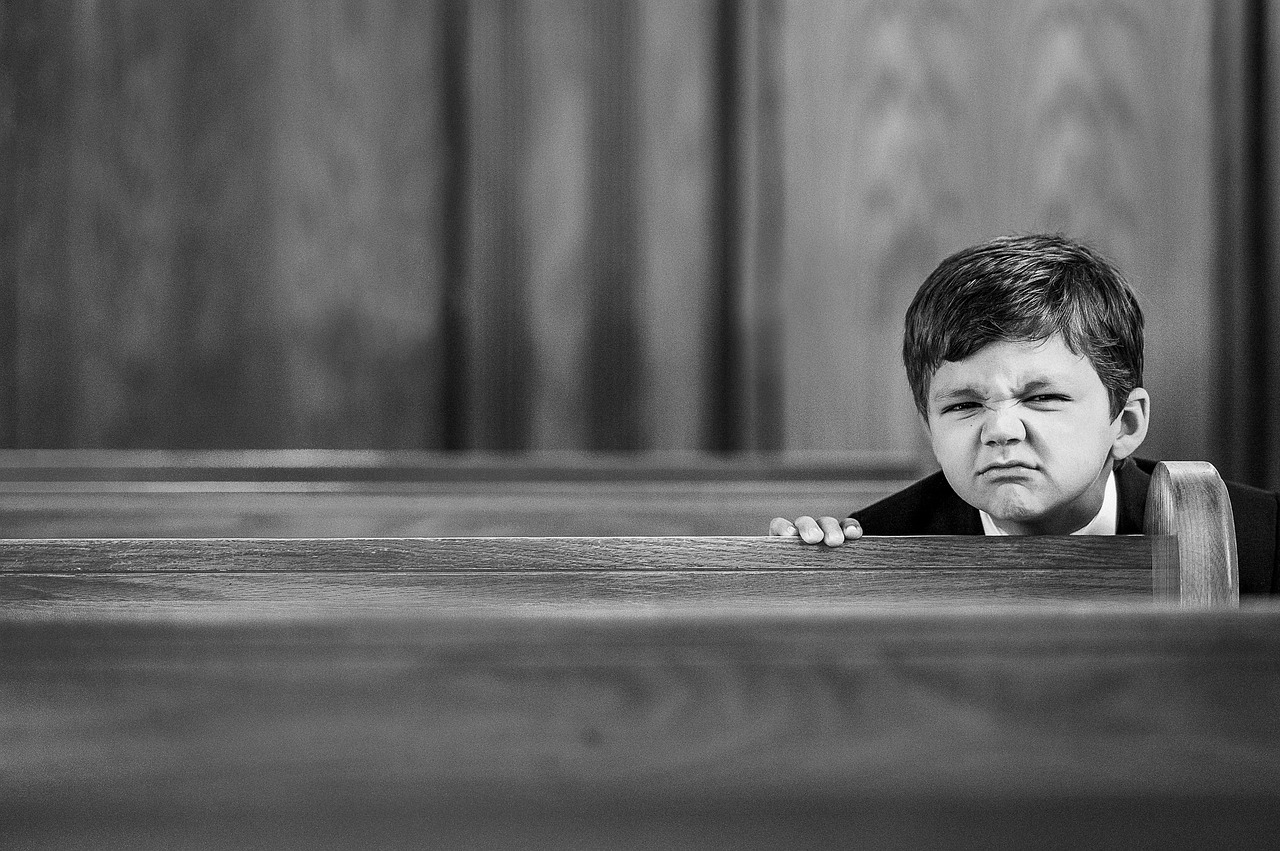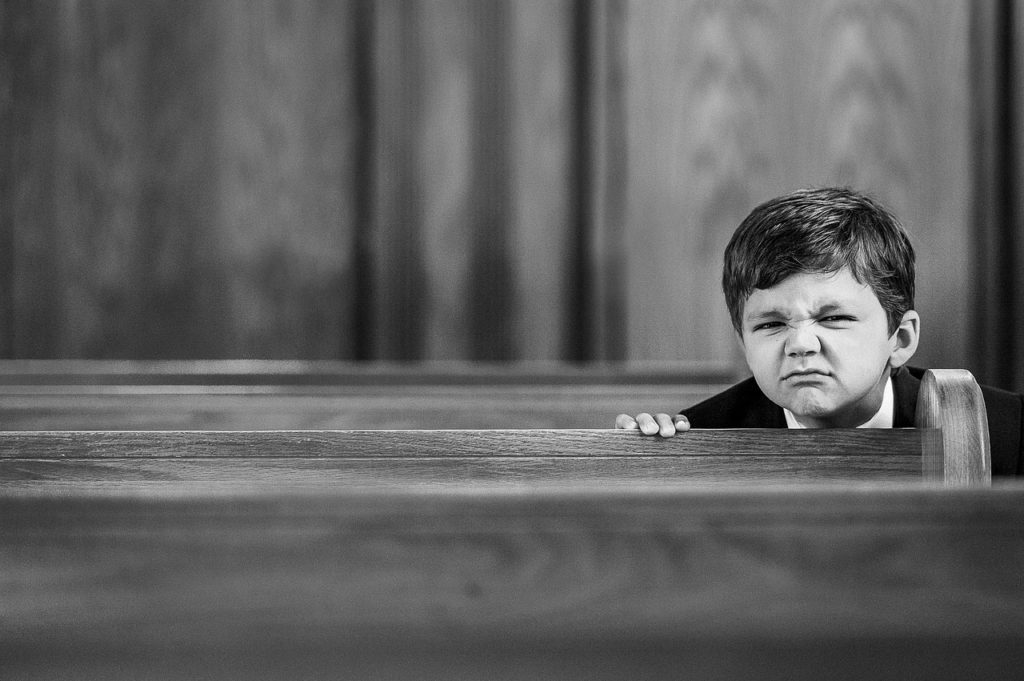
kareni / Pixabay
We don’t go to heaven when we die.
In a previous post, I presented 12 questions that might reveal the degree to which we unknowingly separate God out from the rest of life. In a comment, Monica asked me to go a little deeper into question number 3:
3. Do you speak of going to heaven when we die?
Answering this in the affirmative might be an indication that you suffer from Modern Secular dualism: the idea that material things and spiritual things are radically distinct. This separation leads to two false views of reality. The first is the secular manifestation of this idea: that the spiritual world does not exist, or is irrelevant to our lives. A second error, like unto it is that of the Christian under the influence of Modern Secularism–that although the spiritual realm exists, it is very distant. This view leads to the idea of “going to heaven when we die.”
Since its beginning, the church battled heresies involving the relationship between physical and spiritual realities.
Gnosticism: Material Bad
Gnosticism is an ancient heresy that was very influential in the early centuries of the church. One of the basic ideas of Gnosticism is that the spiritual world stands in opposition to the material one because they have to distinct natures–the material is evil and the spiritual is good.
Accepting this premise, it follows that the body is evil and the soul is good. The soul is imprisoned in the physical body, but upon death, it is freed and goes to a spiritual heaven where it has always truly belonged.
Modern Secularism is a lot like Gnosticism in that it also separates the physical from the spiritual. The difference is the Gnostics undervalued the physical and the Moderns undervalue the spiritual.
We find neither devalued in the Bible.
Genesis
In the first verses of Genesis, God creates all that is. He called it all good. On the sixth day, he created people.
Then the Lord God formed a man from the dust of the ground and breathed into his nostrils the breath of life, and the man became a living being.
Genesis 2:7
Human beings are certainly physical beings, but we are spiritual beings as well. Both are good. Jesus offers and even more complete anthropology when he quotes the Old Testament command to
‘Love the Lord your God with all your heart and with all your soul and with all your strength and with all your mind’ Luke 10:27.
Human beings are created with bodies and minds and hearts and spirits–all of these are declared it “very good” (Genesis 1:31). The Fall results in a twisting or distortion of all things, not just physical things. Contrary to both Gnostic and Modern teaching, all dimensions of humanity are valued, all are fallen. Consequently, all aspects of humanity are in need of redemption. In his death on the cross, Jesus redeems all of the whole person, not just her soul.
God declared all of creation to be good. All of creation is fallen because of Man’s sin. All of creation, not just some human souls, have been redeemed by Christ’s sacrifice on the cross.
This is why we speak of the Cosmic Redemption–Christ redeems the entire Creation–all that God has made. On his return, he will complete redemption when he makes “all things new.”
Revelation
At the end of the book of Revelation, we see a picture of where history is headed.
I saw the Holy City, the new Jerusalem, coming down out of heaven from God, prepared as a bride beautifully dressed for her husband. And I heard a loud voice from the throne saying, “Look! God’s dwelling place is now among the people, and he will dwell with them. They will be his people, and God himself will be with them and be their God. ‘He will wipe every tear from their eyes. There will be no more death’ or mourning or crying or pain, for the old order of things has passed away.”
He who was seated on the throne said, “I am making everything new!”
Revelation 21: 3-5
John sees the new Jerusalem, the dwelling place of God, “coming down out of heaven.” God will dwell among his people, on earth.
This is not new. It is a biblical pattern. God delights to be with human beings in the Garden. He travels with the nation of Israel, living in a tent as they did. He lives with the Jews in the temple in Jerusalem. He dwells among us as the God/man, Jesus. Today, Christ takes up dwelling within us in his Spirit. So it is no surprise that God would once again be the one who comes to us.
It sounds to me as if we won’t be going to heaven.
[click_to_tweet tweet=”God lived with his people in The Garden, in the wilderness, in the temple, in the first century, and indwells us today. Why do we talk about going to live him in heaven when we die? Isn’t it likely He’ll stick to the same pattern? #heaven” quote=”God lived with his people in The Garden, in the wilderness, in the temple, in the first century, and indwells us today. Why do we talk about going to live him in heaven when we die? Isn’t it likely He’ll stick to the same pattern?”]
[click_to_tweet tweet=”It seems pretty clear that none of us, or very few of us, are going to heaven when we die. #heaven” quote=”It seems pretty clear that none of us, or very few of us, are going to heaven when we die.”]
Eternal life starts now
One’s view of heaven can make a tremendous difference in our lives right now.
If heaven is just spiritual and spiritual things are distant in both time and place, then eternal life has little to do with “real” life. The Christian life is a life of waiting. And so we wait.
If heaven is a holistic reality involving the whole person and all of creation; if Jesus lives in us and if heaven will be on earth, then a lot of the conditions for heaven are already in place and it is pretty close. Eternal life will certainly be different when all things are made new, but it will also be a continuation of what God has started in us and with us. This makes the present, eternally significant.
Modern liturgies reinforce the idea that the spiritual is non-existent or far away. Christians need to counter these with our own liturgies that practice the wholeness of creation. Ones that reinforce the spiritual significance of our thoughts, words, and deeds. Ones that increase our awareness of the nearness of Christ in us. Ones that help us to see all life is worship. Ones that equip us to embrace our purpose to steward creation.




